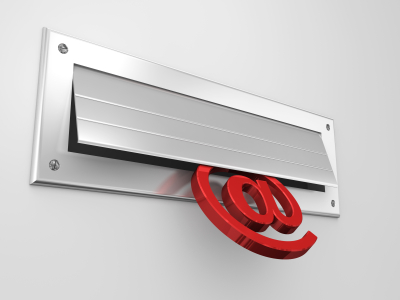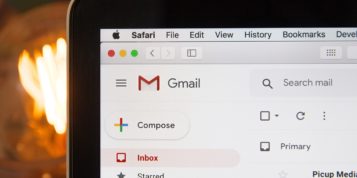The means by which small and medium-sized businesses (SMEs) can communicate with their customers has risen significantly over the past decade, offering businesses platforms for direct communication with customers like never before. But whilst new channels, like Facebook and Twitter, have helped to enrich communication, it is no doubt email, more specifically business email, which remains the most essential link between businesses and their customers.
The astronomic rise of social media channels has led some commentators to suggest that email communication is a dying art. But although these relatively new channels continue to grow in importance, social media fulfils a different role in customer communications; they are perhaps better suited to broadcast marketing transmissions than one-to-one communications with customers. After all, there’s only so much that you can achieve with 140 blink-and-you’ll-miss-them characters. When it comes to communications that last, it is email that rules the roost.
Recent research from eConsultancy highlights the incredible returns that can be made from the relatively small investment in professional email, revealing that it offers the second best RoI behind SEO for many businesses in the UK, ranking well ahead of social media.
However, in a world where perception is everything, the risk a business inflicts on itself by using a free email service can be huge.
This may go some way to explain the recent growth of the business email market, particularly in the years since 2009. In a recent interview with 123-reg, Open-Xchange (specialists of web-based open-source email, calendar and other coloration programs) CEO Rafael Laguna stated that in 2009 his company reported there to be 15 million total paid webmail boxes. By 2012, this figure had risen to 60 million.
For any business, but especially a business in its infancy, free email services may appear to be the best way to get going. After all, such services are free, flexible and allow communication with a vast amount of people. However, in a world where perception is everything, the risk a business inflicts on itself by using a free email service can be huge.
When dealing with clients and prospects, there’s nothing that says “professional and trustworthy” like a corporate email that’s personalised to your domain name. Indeed, customers have come to expect such addresses as standard. Businesses with a professional email service consistently reinforce the impression that they are serious about business, offering an added level of reassurance to customers that the outfit they are dealing with is legitimate, safe and trustworthy.
A separate, and perhaps more important, issue is security. Over the past decade there has been a growing number of incidents where SMEs have suffered hacks, outages and downtime when using free email services. Several cases have been reported where businesses have had their professional bank accounts compromised by scammers who specialise in intercepting the emails of companies that are connected with free email services.
Any business associating its brand with a free email service is immediately adding a serious security risk to their business, which is entirely avoidable. Such security fears have been most evident in Australia, where in 2011, the Australian National Audit Office called on all government agencies to block free web-based email services like Gmail and Hotmail to mitigate security and information integrity risks. At the time, it was stated that free services provided a point of entry for hackers that could potentially lead to information disclosure.
With the abundance of information that is communicated daily by email, the security level of a business’s communication must be sufficient to handle the delicate nature of business correspondence. As a greater number of people become conscious of the levels of privacy and security, businesses must be able to guarantee this for their customers. Simply put, a free email service will not instil such confidence and could potentially result in a loss of revenue.
The relatively small costs associated with a professional domain-led email account are far outweighed by the boost it provides to brand identity and security credentials. Both key to winning customers – and keeping them. Sticking to free services will place your correspondence on the fast-track to the spam folder.






